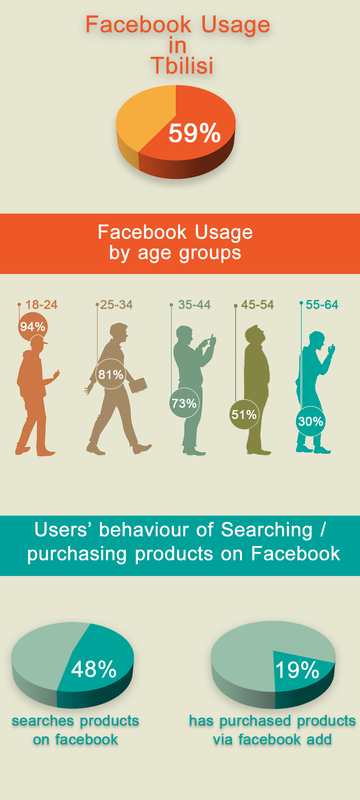The Number of Facebook users is increasing by 17% every year. Currently, 1.18 billion people visit Facebook every day for at least 20 minutes, which made Facebook one of the most efficient advertising platforms.
ACT was interested to in the number of Facebook users in Tbilisi and if it is used for finding their favourite products.
The survey revealed that 59% of Tbilisians use Facebook. It is especially popular among youth of the age 18-24. Absolute majority of this age group are Facebook users (94%).
The study also showed that using Facebook for finding a favourable product is quite a common practice; 48% of consumers have this habit. One fifth of consumers (19%) has bought the desired product after seeing the ad on Facebook (at least once).
*ACT conducted the survey in October, 2016. Through random sampling method, 400 adult residents of Tbilisi were interviewed. Statistical error of the data does not exceed 4.9%, interviewing method – face-to-face interviews.






